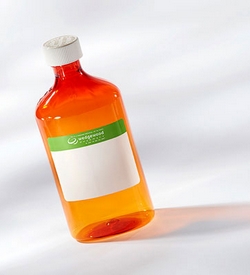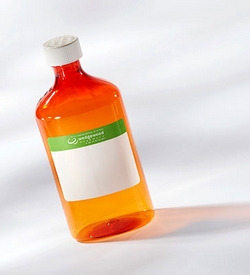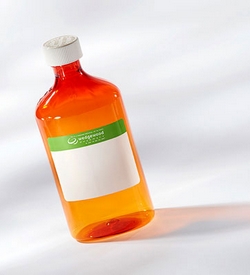Providing Quality & Trust
Doxycycline as Calcium Oral Suspension
Wedgewood Pharmacy
$118.50 - $150.00
$118.50 Each
Detailed Description
DOXYCYCLINE (AS CALCIUM): ORAL SUSPENSION

Doxycycline (as Calcium) Oral Suspension
Prescribed For: Dogs, Cats and Birds
May be Prescribed For: Infection-Bacterial
Doxycycline (as Calcium) may be prescribed for
- Infection-Bacterial
The dosage form available for Doxycycline (as Calcium) is Oral Suspension. Wedgewood Pharmacy’s oral suspensions and solutions are a familiar and convenient dosage form. Oral suspensions and solutions can be administered directly into the mouth using a dosing syringe or mixed with a small amount of food. They offer a wide range of flavoring options, and flexible dosing adjustments.
1 strength of Doxycycline (as Calcium) Oral Suspension is available in 35 mg/ml.
General Drug Information and Indications
Doxycycline is broad-spectrum antibiotic that is effective against a wide variety of bacteria and other types of organisms. It is particularly useful for some of the more unusual types of infections including those carried by ticks. Doxycycline is available in an oral and an intravenous form. Oral doxycycline reaches high drug concentrations in most tissues in the body; even difficult to penetrate areas such as joints, the prostate, the central nervous system and the eyes. In addition to its use as an antibiotic, researchers are studying the use of low doses of doxycycline as an anti-inflammatory in both dogs and horses with osteoarthritis. Doxycycline may be used in animals with decreased kidney function because it is eliminated primarily via the digestive tract.
Like many other drugs in veterinary medicine, this drug is not FDA approved for use in animals and is not available from a veterinary pharmaceutical manufacturer. Instead, it is compounded by a specialty pharmacy.
How to Give this Medication
Give this medication to your pet exactly as your veterinarian prescribes. If you miss giving your pet a dose of doxycycline, give the next dose as soon as you remember or, if it is close to the next scheduled dose, return to the regular schedule. Do not double dose to catch up.
Doxycycline is well absorbed after oral administration and its absorption is only slightly affected by the presence of food in the stomach. Many veterinarians recommend giving the doxycycline with food in order to decrease any stomach upset.
Cats are at increased risk to form scar tissue in their esophagus after “dry” pilling with doxycycline. If the doxycycline pill stays in contact with the inner lining of the esophagus, it can damage the lining and eventually cause a partial blockage. In order to minimize this problem, some veterinarians suggest dosing the cat with water after pilling or using a compounded liquid product to minimize esophageal damage.
Wash your hands after giving your pet this medication.
Side Effects
Be sure to discuss any side effects with your veterinarian immediately.
The most common side effect in dogs and cats is GI upset, including nausea and vomiting.
Precautions
Keep this and all drugs out of reach of children. Doxycycline is a prescription drug and should be used according to your veterinarian’s directions. It should only be given to the animal for which it was prescribed. Do not give this medication to a person.
Tetracycline antibiotics are generally avoided during pregnancy because of the risk of bone abnormalities and discoloration of teeth in the developing fetuses. Doxycycline may pose less risk than other antibiotics in the tetracycline family. You and your veterinarian will need to make a decision based on your pet’s medical needs.
Intravenous doxycycline is not used in the horse due to risk of fatal heart arrhythmia.
Drug Interactions
Be sure to review with your veterinarian any medications or supplements your pet may be receiving.
The following drugs may interfere with your pet’s ability to absorb oral doxycycline: oral antacids, such as Tums®; bismuth products, such as Pepto Bismol®; kaolin or pectin containing products such as Kaopectate®; and oral iron. If your pet is being given any of these products and doxycycline, the doses should be separated by 2-3 hours.
Doxycycline is usually not given with certain antibiotics such as penicillins, cephalosporins and aminoglycosides.
Phenobarbital (an anti-seizure medication) can affect how your pet metabolizes doxycycline.
Doxycycline may change blood clotting activity. Pets receiving blood thinners such as warfarin may need additional monitoring and have their dose adjusted.
Overdose
Oral overdose of doxycycline in most instances will cause pronounced GI distress.
If you suspect your pet or another animal was overdosed accidentally or has eaten this medication inadvertently, contact your veterinarian or the A.S.P.C.A.’s Animal Poison Control Center at 888.426.4435. Always bring the prescription container with you when you take your pet for treatment.
If you or someone else has accidentally ingested this medication call the National Capital Poison Center at 800.222.1222.
Storage
Different strengths or dosage forms of doxycycline may have different storage requirements. Read the labeling or ask your pharmacist for the storage requirements of the prescription you receive.
Powered by nopCommerce
This site is running in live payment mode. Real payments will be processed.

